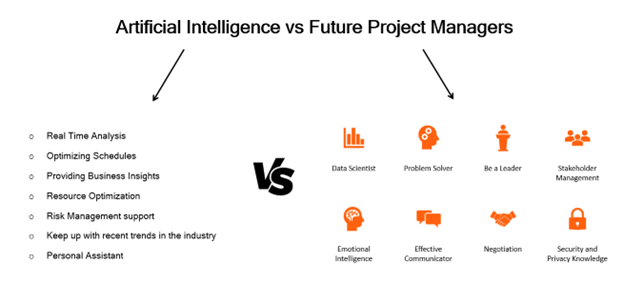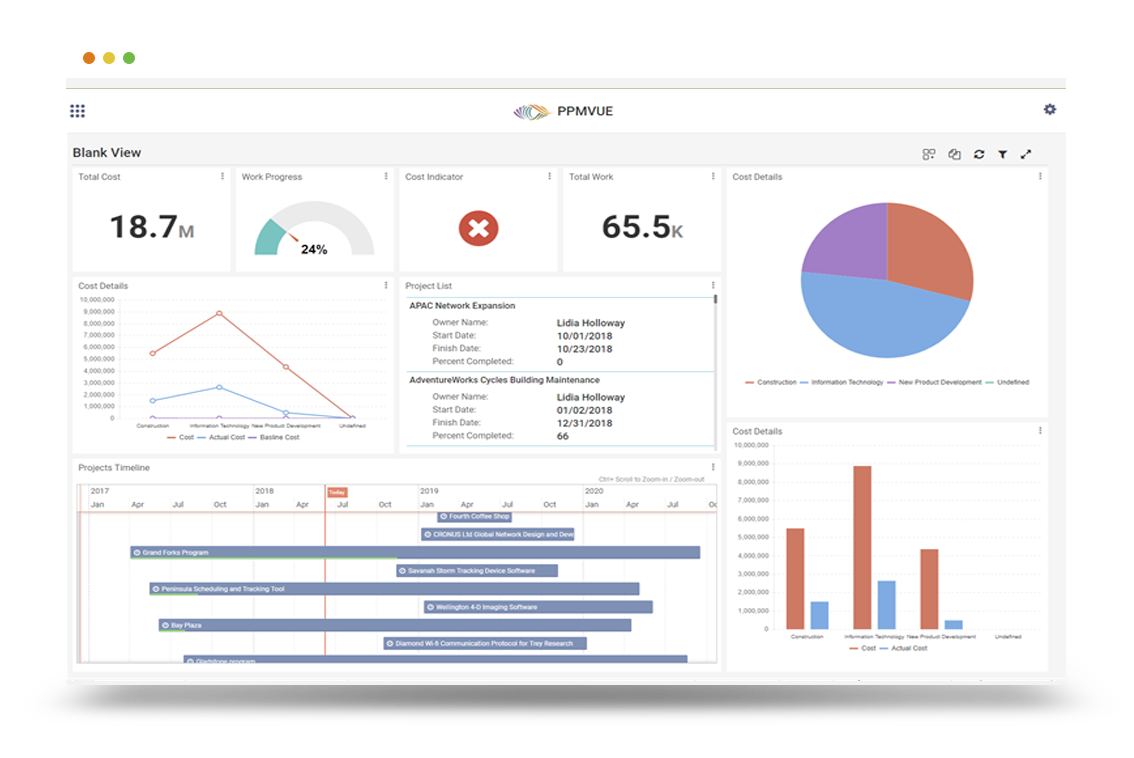How far are we from getting AI in Project Management and what is it really going to do for us?
How far are we from getting AI?
Personally, I don’t think anyone has a crystal ball to truly answer this question. But we can look at what technologies are currently available to predict an answer to this question.
- Voice Recognition and Natural Language commands
- The ability for machines to recognize voice. It can recognize the patterns in the voice of the speaker and relate it to a person (and their preference).
- The ability to understand commands based on Natural Language – To decipher, understand and make sense of the human language in a manner that is valuable.
- “Hey Google”, “Siri”, “Alexa” and “Cortana” – this is already in almost every US household.
- Image Recognition
- The ability for machines to identify objects, places, people, and actions in images.
- Most Smartphones now have the ability to unlock by scanning your face.
- Google Search can provide image searches based on what you type and you can search Amazon or Google by just taking a picture of an object.
- Guiding Autonomous Robots & self-driving cars (Think Tesla) all use image recognition to guide them without hitting objects.
- Aggregate Data and Generate Patterns
- Ability to pull data from multiple sources
- Ability to relate data from multiple sources and make sense of it
- Ability to generate patterns from this data
- Most online advertising (Facebook, Google, etc) use this to predict the patterns of a person’s buying needs or wants.
Unless you have been living under a rock or in a cave, you would have heard about ChatGPT. Recent breakthroughs have already initiated multiple people and organizations to tap into AI capabilities and customize the tool to meet their business needs. In fact, I have seen people appoint ChatGPT as their employee and have started training it to help their organization, not only in the customer service area (answering questions and queries from real customers), but also by having AI be their strategic partner and analyze the market to provide a path on how to navigate today’s uncertainties.
Microsoft also recently introduced Co-Pilot (based on ChatGPT). This tool (still in beta) will be integrated with all Microsoft Products and will assist users to streamline their work and be a personal assistant and mentor for everyone. For example, Co-pilot integrated with Microsoft Outlook will assist you in writing better responses or providing suggestions on scheduling meetings based on your email conversation. It can also analyze the emails for you and automatically add tasks for you to complete.
As you can see, AI is not just a concept in movies anymore, it is real and pretty much here.
Great, so What is it Really Going to Do for Project Managers
- Provide Business Insights
- Insights about the possible outcome of a Project
- Create Optimized Schedules
- Take advantage of new trends and changes in the field – AI could be looking at and feeding itself with new trends / new solutions in the industry/area you are working in and can analyze to if that new solution would be best for your project and how it can optimize it (think LinkedIn marketing at a different level – feeding AI rather than us humans and then AI analyzing it and choosing the best solution).
- Provide recommendations on the prioritization of projects. Since AI can run multiple scenarios in minutes if not seconds, it will be capable of running algorithms that can show you the best projects to be running right now and do this on a continuous basis (compared to when we currently do it once a quarter/year).
- Risk Assessment
- AI enables more accurate predictions for risk probabilities and their impacts.
- AI can pull multiple records across organizations to find optimum mitigation plans for these risks.
- Review real-time data for potential unseen risks based on previous project performance.
- Resource Optimization
- Calculate the best allocation of resources.
- Identify the right resources for the right task.
- Accurately predict resource excess and shortages.
- Provide training recommendations to upskill resources.
- Be a Personal Assistant
- Be the eyes and ears of the Project Manager.
- Be able to collect status updates on the Project Manager’s behalf.
- Create necessary status reports and flagging expectations to bring to your attention
- Proactively provide information about overdue tasks, schedule constraints, and change requests.
- Organize necessary meetings and send reminders to the team.
Does this mean I will be out of a Job?
Leveraging AI for Project Management does not mean that human Project Managers will be going away. In fact, the role of a Project Manager will likely be more important than ever during this time of change and automation. The focus of Project Managers will simply shift from tactical to strategic—much like what has happened for professionals in finance, HR, sales, and other lines of business during digital transformations. As manual, mundane tasks become more automated, professionals will be expected to deliver more strategic value. AI or bots can complete tactical project management work like assigning resources or reporting status. Meanwhile, human Project Managers will focus on ensuring that project results deliver the expected business value and are aligned with strategic objectives.

Stay tuned for Part Three as we wrap up our adventure by addressing the potential roadblocks of AI and what we can do to help! Missed Part One? Click the link below to see what you missed!
EPMA is a global solutions company focused on delivering projects better. Our unique proposition that embodies the full ecosystem and portfolio of any organization has enabled us to deliver projects better and make a significant difference. Our unique and proactive approach of having over 20 developers and solutions architects in the business acts as a true enabler for impact. We are more than ever before positioned to add value, advise, and impact your organization.
Interested in hearing more? Please contact EPMA at 832.772.3762 or email us at [email protected]

